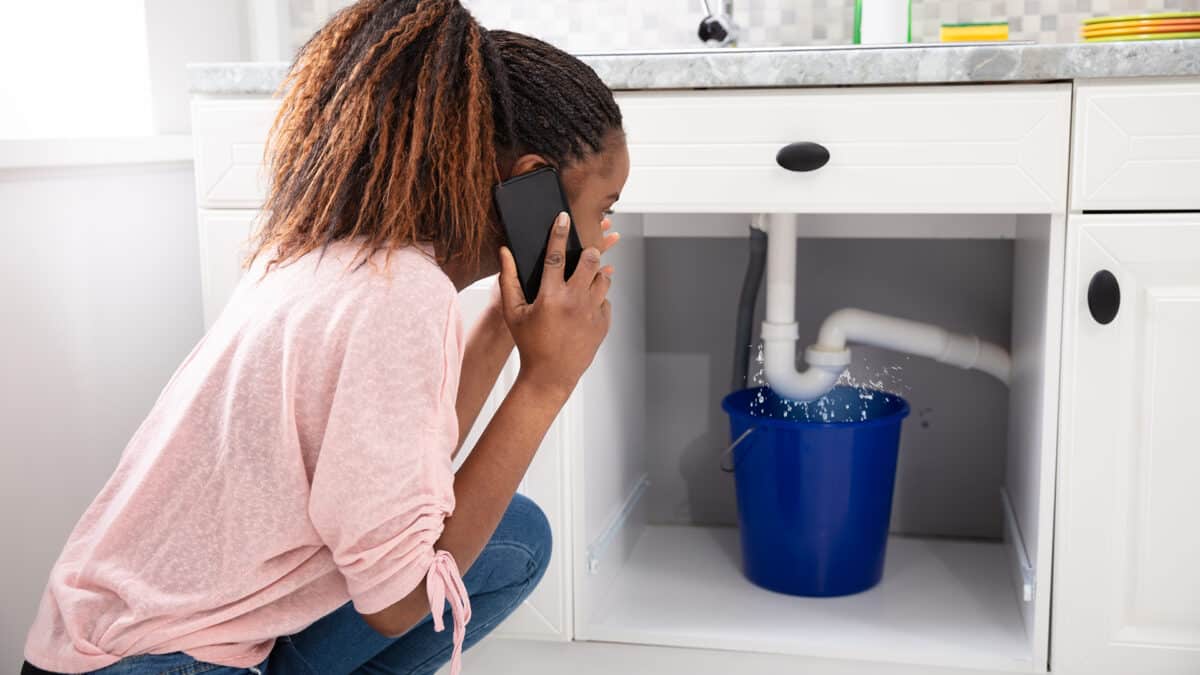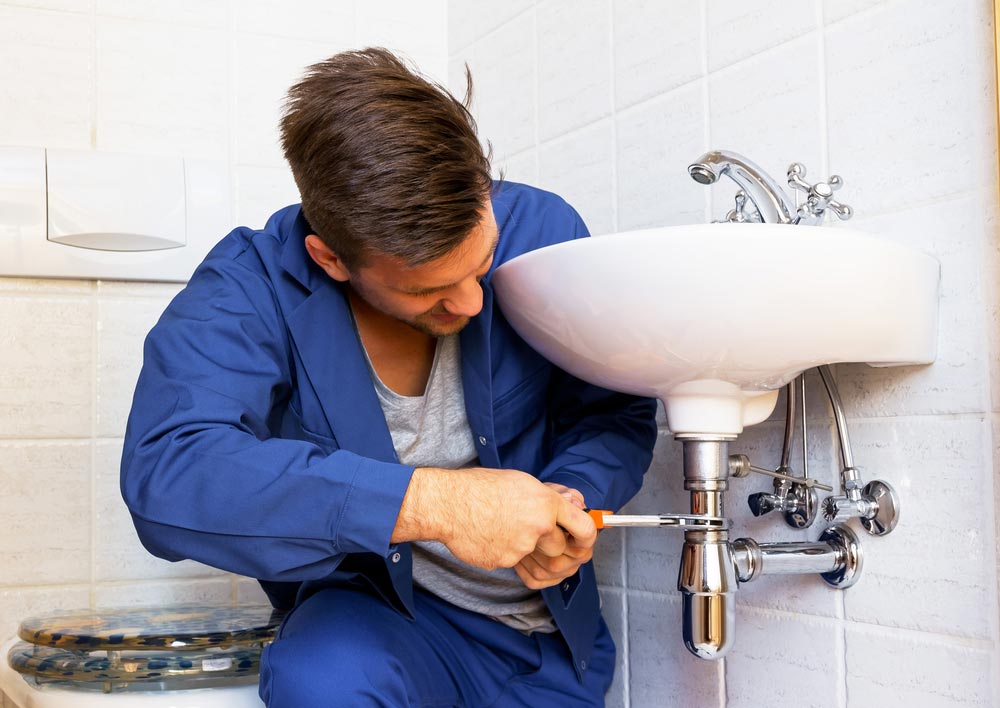Were you on the lookout for guidance about Expert Tips for Emergency Plumbing Repairs?

Pipes emergencies can strike at any time, triggering tension and possible damages to your home. Whether it's a ruptured pipe, a clogged drain, or a leaky faucet, understanding just how to take care of the scenario till a specialist plumber arrives can save you from more complications. This post provides essential emergency situation plumbing suggestions to help you reduce damages and reclaim control throughout a plumbing dilemma.
Shut off the Supply Of Water
The primary step in any type of plumbing emergency is to turn off the supply of water. For localized problems, such as a leaking faucet or commode, switch off the shutoff near the component. In the case of a major leak or burst pipe, locate your home's main water shut-off shutoff and transform it off quickly. Understanding the place of these valves beforehand can save valuable time throughout an emergency situation.
Turn off Your Water Heater
In certain emergency situations, such as a ruptured pipeline, it's smart to shut off your hot water heater. This protects against getting too hot or damage to the unit when water stops moving. Switch off the power supply to the water heater (electric or gas) and allow it cool to prevent prospective hazards.
Momentarily Quit a Burst Pipe
A ruptured pipeline can result in significant water damages in mins. To reduce the issue:
Call a professional plumbing professional instantly to resolve the issue permanently.
Have an Emergency Situation Plumbing Package
Prepare a fundamental plumbing emergency situation kit to take care of minor concerns efficiently. Your package must include:
Having these devices handy can make a significant distinction in your capability to manage emergency situations.
Unclog Drains Safely.
A clogged up drain can be a frustrating and untidy issue. Below's exactly how to tackle it:.
If these approaches don't function, avoid using extreme pressure, as it may intensify the clog.
Take Care Of Overflowing Toilets.
An overflowing bathroom can create prompt chaos. Right here's what you must do:.
Address Little Leakages with Temporary Fixes.
Little leakages can promptly become significant issues if left uncontrolled. Make use of these temporary repairs up until specialist aid arrives:.
While these repairs aren't long-term, they can help minimize water loss and damage.
Take Care Of Frozen Piping Very Carefully.
In chillier climates, frozen pipes are an usual emergency situation. If you presume a frozen pipe:.
Know When to Call a Professional.
While quick fixes can aid briefly, certain pipes problems need immediate expert interest. Call a plumbing technician if:.
Immediately getting in touch with a professional makes sure the problem is resolved properly and prevents additional complications.
Protect against Additional Damages.
Taking quick activity to reduce damages can save you money and time over time. Below's exactly how:.
Verdict.
Plumbing emergency situations can be overwhelming, yet with the ideal expertise and tools, you can handle the situation successfully until help shows up. By turning off the water system, addressing little leakages, and using short-lived solutions, you can reduce damages and keep your home safe. Keep in mind, these tips are short-term options; always seek advice from a qualified plumbing to deal with the origin of the problem. Preparation and quick thinking are your finest allies in any type of pipes emergency situation.
8 Helpful Tips for Managing Plumbing Emergencies at Home
If your plumbing system hasn’t failed once, wait for it because almost everyone has a story to tell. Sometimes, it could be simple emergencies such as a leaking pipe, a blocked cistern, or even a big burst pipe. In situations like this, you need to have some handy tips to save you some money and from possible damages.
Take care of minor issues early.
Sometimes, you could have avoided an emergency by taking proactive measures while it was still early. Some major plumbing emergencies can be a result of an ignored minor issue. We recommend that you have items like plumbing tapes and other related items. A plumbing tape can allow you to manage minor leaks before the plumber arrives.
Cut off the water supply.
This tip is essential in almost any type of leakage problem. For problems like minor leakages in the toilet or kitchen, turn off the supply that takes water to the affected pipes. If the leakage is a major pipe, you must shut off the supply valve to the entire building. This will help you avoid flooding your home and neighbors if you share a flat.
Know your plumbing system
Folks typically move into a new apartment without understanding the water supply around the building. This can prove disastrous if a water emergency arises and the plumber is far away. The previous tip will prove useless if you don’t practice this one. More importantly, know where your water shut-off valve is located – you’ll need that knowledge to prevent potential home floods.
Have some common handy tools
There are lots of plumbing emergencies that you can handle without hiring a plumber. That’s why you must keep some tools available always. Some tools that you can use to fix simple plumbing emergencies easily include plumbing tapes, screwdrivers, thread seal tapes, plungers, pliers, tape measures, and rubber gloves.
Insulate your pipes from cold
You’ll save yourself from many plumbing expenses if you protect your water pipes from the cold. This is because of the harmful effects that cold weather can have on your pipes. During winter, your pipes can burst from being overly expected to freezing temperatures. So, make sure insulators are there to keep the pipes working correctly.
Avoid practices that will clog your toilet.
Many people indulge in practices that can damage the plumbing system of the entire building. One of these is when they use their toilet to dispose-off garbage. They flush all kinds of things, such as paper towels, bandages, hairs, female sanitary products, etc., down the toilet. This will block your toilet in the long run, incurring unnecessary expenditures. Dump such waste in the trash instead.
Check your dials regularly.
Sometimes, there could be leakages in your home without noticing them in time. So, constantly monitor your water meter dial. If the dial is reading when there is nobody using water, this is an indicator that there is leaking. Check for leaks immediately. Call a plumber as soon as possible if you can’t find any.
https://www.constructionplacements.com/8-helpful-tips-for-managing-plumbing-emergencies-at-home/

As a passionate person who reads on Expert Tips for Emergency Plumbing Repairs, I think sharing that excerpt was a good thing. Sharing is caring. Helping people is fun. Thanks for your time. Don't forget to check up our site back soon.
Visit Url